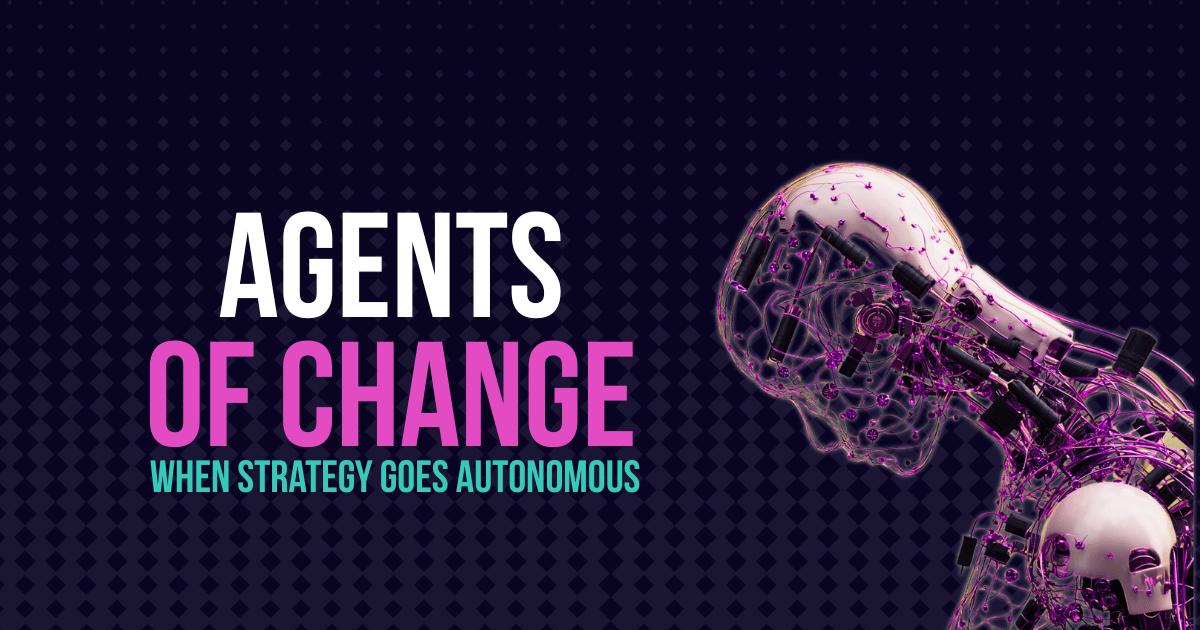- Enterprise AI Daily
- Posts
- Agents of Change: How AI Workers Are Rewriting the Rules of Business
Agents of Change: How AI Workers Are Rewriting the Rules of Business
When your strategy starts making decisions without you, it's time to rethink everything

Remember when "business strategy" meant quarterly planning sessions, endless PowerPoints, and hoping your five-year roadmap wouldn't be obsolete by year two? Those days are numbered. Agentic AI is turning strategy from a static plan into a living, breathing, decision-making organism that adapts faster than your competition can pivot.
Today we're diving into how AI agents are fundamentally reshaping business strategy, plus the latest shakeups in the AI ecosystem that every enterprise leader should know about.
The Future of AI in Marketing. Your Shortcut to Smarter, Faster Marketing.
This guide distills 10 AI strategies from industry leaders that are transforming marketing.
Learn how HubSpot's engineering team achieved 15-20% productivity gains with AI
Learn how AI-driven emails achieved 94% higher conversion rates
Discover 7 ways to enhance your marketing strategy with AI.

Enterprise AI Daily // Created with Midjourney
The Strategic Revolution You Didn't See Coming
Forget chatbots that answer customer service tickets. Agentic AI represents a seismic shift in how businesses operate, moving from reactive planning to proactive, autonomous decision-making at scale.
Traditional business strategy follows a predictable pattern: analyze, plan, execute, measure, repeat. It's methodical, human-driven, and painfully slow in markets that change by the minute. Agentic AI flips this entire model on its head by creating systems that can analyze market conditions, identify opportunities, and execute strategic moves in real-time.
The key difference is agency itself. Unlike traditional AI tools that respond to prompts, agentic AI systems can:
Set their own goals
Develop multi-step plans
Adapt their approach based on outcomes.
Consider how this plays out in practice.
A traditional retail strategy: quarterly reviews of pricing, inventory, and market positioning.
An agentic AI system: monitors competitor pricing, supply chain disruptions, consumer sentiment, and seasonal trends in real-time, automatically adjusting pricing strategies and inventory allocation across thousands of SKUs without human intervention.
The implications for enterprise leadership are profound. Strategy becomes less about creating perfect plans and more about setting the right parameters for autonomous systems. The question shifts from "What should we do?" to "What should we allow our systems to do on our behalf?"
Agentic AI enables entirely new strategic approaches that were previously impossible. Dynamic market positioning, personalized customer experiences at scale, and supply chain optimization that responds to disruptions in minutes rather than months become standard operating procedures.
For C-suite executives, this represents both an opportunity and a challenge.
The opportunity: unprecedented strategic agility and the ability to compete in ways that were previously unimaginable.
The challenge: maintaining oversight and control over systems that can make thousands of strategic decisions per day.
Takeaway: The enterprises that master this transition will enjoy significant competitive advantages. Those that don't risk being outmaneuvered by competitors whose strategies evolve faster than traditional planning cycles can match.

Enterprise AI Daily // Created with Midjourney
News Roundup
Linda Yaccarino Steps Down as X CEO. The former NBCUniversal executive's departure marks another leadership shuffle at the platform formerly known as Twitter.
Read more →Google Blocks OpenAI's $3B Windsurf Acquisition Google's competitive move to torpedo OpenAI's potential acquisition of code editor Windsurf demonstrates the intensifying battle for AI development tools.
Read more →AI Job Creation Defies Gloomy Predictions Despite widespread fears about AI replacing human workers, new research suggests the technology is creating more jobs than it eliminates. The key insight for enterprise leaders is that AI is augmenting human capabilities rather than simply replacing them. The most successful implementations combine AI efficiency with human creativity and oversight.
Read more →
TL;DR:
Agentic AI transforms business strategy from static planning to autonomous, real-time decision-making
Traditional quarterly planning cycles can't compete with systems that adapt strategies continuously
The shift requires new governance models and risk management approaches for autonomous systems
Early adopters should focus on narrow, well-defined use cases before scaling to broader strategic applications
Leadership shuffles at major tech platforms underscore the importance of diversified digital strategies
The future of business strategy is all about creating better systems that can plan, adapt, and execute without waiting for the next board meeting. The enterprises that understand this distinction will write the rules for the next decade of competition.
Stay sharp,
Cat Valverde
Founder, Enterprise AI Solutions
Navigating Tomorrow's Tech Landscape Together
Your Feedback = Our FuelHow was today’s newsletter? |
